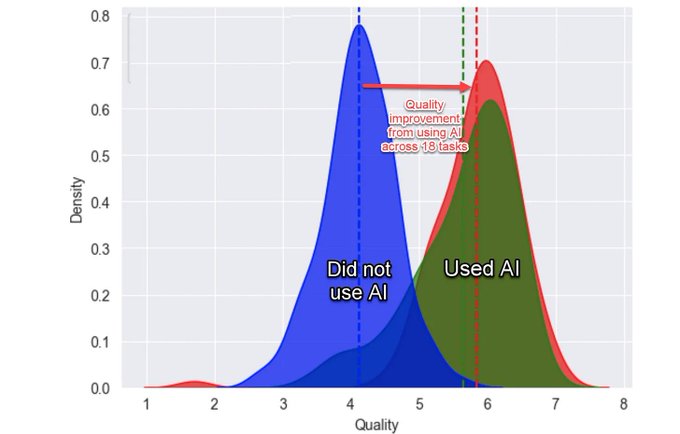Source: https://retractionwatch.com/2023/09/08/frontiers-retracts-nearly-40-papers-linked-to-authorship-for-sale/
The publisher Frontiers has retracted nearly 40 papers across
multiple journals linked to “the unethical practice of buying or selling
authorship on research papers,” according to a press release posted to a company website Monday.
The release also states Frontiers is adopting new policies to prevent the sale of authorships on papers it publishes.
The publisher’s old policy
simply stated that “Requests to modify the author list after submission
should be made to the editorial office using the authorship change
form.”
Now, such requests “will only be granted under exceptional
circumstances and after in-depth assessment by the Frontiers’ research
integrity unit,” according to the release. The publisher will also keep
track of the requests “to identify suspicious patterns and trends.”
The new policy also states that Frontiers will deny authorship changes requested after acceptance as a rule, and:
In case of any concerns regarding potential authorship manipulation,
Frontiers reserves the right to contact the authors’ institution(s) for
further investigation and/or decline the requested changes.
Websites that advertise authorship positions on scientific papers have been around for years, and brokers also post ads on social media sites including Facebook.
Frontiers has retracted 38 papers linked to sold authorship after an
investigation by its research integrity unit, a spokesperson told us. A
list of the 38 papers the publisher provided us indicates the
retractions began in early March, and a slew came out Monday.
Many of the notices (here’s a representative one from Frontiers in Genetics) contain the same paragraph:
Following publication, concerns were raised regarding the
contributions of the authors of the article. Our investigation,
conducted in accordance with Frontiers policies, confirmed a serious
breach of our authorship policies and of publication ethics; the article
is therefore retracted.
Sleuths posting on PubPeer identified advertisements to buy author positions for some of the retracted papers, which tipped off the publisher, a spokesperson said.
Last September, sleuth Nick Wise posted a screenshot on PubPeer of a Facebook post seeming to advertise an authorship position for “Taguchi-assisted
optimization technique and density functional theory for green
synthesis of a novel Cu-MOF derived from caffeic acid and its
anticancerious activities,” which appeared in Frontiers in Chemistry in 2021.
Ghasem Sargazi, a corresponding author based at the Noncommunicable
Diseases Research Center of Bam University of Medical Sciences in Iran, responded to Wise:
The advert shown above is fake. This paper was submitted to frontiers
Chemistry not for Elsevier, and all of the authors in this paper have
contributed their active participation during first draft and revision
stage.
After the paper was retracted, Sargazi wrote on PubPeer that the “journal retracted this paper without any evidence.” He told us:
Our article has been at the highest level from a scientific point of
view, and the authors also contributed according to their role. But the
editor retracted the article without asking for any explanation. This
issue is very disappointing for us and will certainly affect our
scientific future prospects.
Alexander Magazinov, another sleuth, flagged two papers
by some of the same authors last December. He posted screenshots of
advertisements for similar papers from an authorship-brokering website.
Navid Shomali, an author of both papers affiliated with Tabriz University of Medical Sciences in Iran, replied
to one of Magazinov’s posts that the website on which the advertisement
appeared was “fake,” and pointed out discrepancies between the
information in the ad and the published paper. He said:
We were not surprised by this message, for various fraud websites and
platforms have advertised the title and abstract of the articles with
the purpose of personal gains. … Since the manuscripts were sent to free
plagiarism detection websites, we assume the title and content of the
manuscripts were abused to promote the specific pages.
The retraction notice for the Frontiers in Bioengineering and Biotechnology paper, “Optimizing sgRNA to improve CRISPR/Cas9 knockout efficiency: special focus on human and animal cell,”
states that the authors “do not agree to this retraction.” Neither
corresponding author immediately responded to our request for comment.
Shomali reached out to us separately regarding the entry in our database for his Frontiers in Immunology paper, “Dysregulation of Survivin-Targeting microRNAs in Autoimmune Diseases: New Perspectives for Novel Therapies,”
one of three of his articles that the publisher pulled on Monday. (We
had mistakenly listed it as a “research paper” rather than a “review
article,” which we corrected at his request.)
According to an email the publisher sent the authors in June, which
Shomali shared with us, Frontiers had decided to retract the paper after
“concerns were brought to our attention from the German Cancer Research
Center regarding the authorship of the article.”
The email included a draft retraction notice, which specified that
“the German Cancer Research Center contacted the editorial office
stating that the author Mostafa Jarahian is not an employee.” Jarahian
has not responded to our request for comment.
Shomali told us he had sent the following objection to the journal:
I, the first author, on behalf of the authors, declare that there has
never been any author contribution discrepancies in our article; nor
has been posted In mysterious websites, PubPeer, etc, as well as the
authorship and the order of the authors was the one that was submitted
for the first time and remained unchanged during the whole peer-review
process; to ensure, you can check the history of the journal. Besides,
the APC of our article was paid by Dr. Marwah Suliman Maashi not DKFZ
(as mentioned in acknowledgment section of article); therefore, DKFZ has
not the right to complain about our article about affiliation of
Mostafa Jarahian. Since the APC has been paid personally and there is no
author contribution discrepancies in our article, you can address the
possible minor concern by changing the affiliation of Dr. Jarahian to
“Former DKFZ employee” and revoke your decision to retract and make a
correction. Otherwise, I don’t see any rationale to retract our article;
if so please give a reasonable explanation for your decision.
He further told us:
Actually, Mostafa Jarahian was working at DKFZ from 2004 until
mid-2020 and published articles in prestigious journals such as Nature
with DKFZ affiliation
(https://scholar.google.com/citations?user=SBRj4H4AAAAJ&hl=de). He
used his affiliation In later articles as he did so without any biased
purposes, but DKFZ informed the journal that it should not be. The
article mentioned above is part of my PhD thesis; as I explained, there
has never been any authorship change during whole review process and the
APC was paid be second author not DKFZ, so there is no rationale to
retract my article instead the affiliation can be changed to publish a
correction. We complained about this matter to DOAJ, OASPA, and Thomson
Reuters and looking forward to hearing from them. Since the article is a
part of my PhD thesis and our institution monitors the retraction watch
database and makes decisions based on it, I would sincerely ask you to
please exclude my article from your database as an exceptional subject.
My article has been retracted for an author’s affiliation who was
working at for nearly 20 years. It is completely unfair to retract an
article for such a minor error.
Like Retraction Watch? You can make a tax-deductible contribution to support our work, follow us on Twitter, like us on Facebook, add us to your RSS reader, or subscribe to our daily digest. If you find a retraction that’s not in our database, you can let us know here. For comments or feedback, email us at team@retractionwatch.com.





